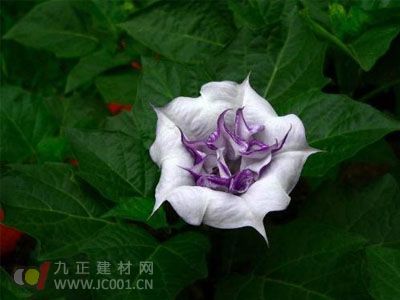While many flowers and plants are known for their air-purifying properties, some may actually contain harmful substances that can promote cancer. According to research by Academician Zeng Yi from the Institute of Virology at the Chinese Academy of Preventive Medicine, certain plants contain compounds that can activate the Epstein-Barr virus (EBV), which is linked to various cancers, including nasopharyngeal carcinoma and brain tumors. These substances can stimulate lymphocytes, leading to tumor growth when combined with other carcinogens.
Although it’s not guaranteed that keeping these plants at home will cause cancer, there are significant risks, especially for those who may be genetically predisposed. Genetic factors play a major role in most brain tumors, and EBV is often involved in their development. Environmental carcinogens and viruses typically work together, so it's wise to avoid such plants if you're unsure about your family history of cancer.
The Viral Disease Control Institute has identified 52 toxic plant species, many of which are commonly found in gardens and herbal nurseries. Some of the more common ones that might appear in homes include Tiehai Tang (Zhiermei), variegated wood, iris, black carp, red-backed osmanthus, tung tree, and golden fruit. Rare varieties like mandala may also be present.

Plants have always been nature’s gift to humans, helping purify the air and bring beauty into our lives. As urban living spaces expand, many people bring outdoor plants indoors to enjoy their beauty. However, not all plants are safe—some vibrant, colorful species may carry hidden dangers. They might be the silent accomplices in the development of cancer.
In city flower markets, you can easily find plants like T. chinensis, variegated wood, and golden fruit. Their unique shapes, bright colors, and affordable prices make them popular choices. But experts warn that the more attractive a plant looks, the more likely it could be dangerous. It’s important to be cautious and remove potentially harmful plants from your home to protect your health.
Flowers were meant to grow outdoors, but human affection has brought them inside. In doing so, we may unknowingly expose ourselves to risks. If you love these plants, consider moving them outside instead of keeping them indoors, especially if children or elderly family members are present. Balancing our love for nature with personal safety is key to a peaceful and healthy lifestyle.
Stainless steel wire is a versatile material that is used in a variety of applications due to its strength, corrosion resistance, and durability. It is ideal for use in WIRE MESH, wire rope, and other applications where high strength and corrosion resistance are required. Stainless steel wire is available in various grades and sizes, allowing it to be tailored to specific needs and requirements.
Anti-corrosion stainless steel wire is a type of stainless steel wire that has been specially treated to resist corrosion. This makes it ideal for use in harsh environments where corrosion is a concern, such as marine applications or chemical processing plants.
Stainless steel wire for wire mesh is a type of stainless steel wire that is specifically designed for use in wire mesh. This type of wire is often used in applications such as fencing, screens, and grates. It is also commonly used in the construction industry for reinforcement purposes.
Stainless steel wire rope is a type of wire that is made from stainless steel and woven into a rope-like structure. This type of wire is extremely strong and durable, making it ideal for use in heavy-duty applications such as lifting and towing. Stainless steel wire rope is also resistant to corrosion, making it suitable for use in marine and industrial environments.
Stainless Steel Wire,Anti-Corrosion Stainless Steel Wire,Stianless Stel Wire For Wire Mesh,Stainless Steel Wire Rope
Hebei Aibuer trading co., Ltd , https://www.ablehardwares.com